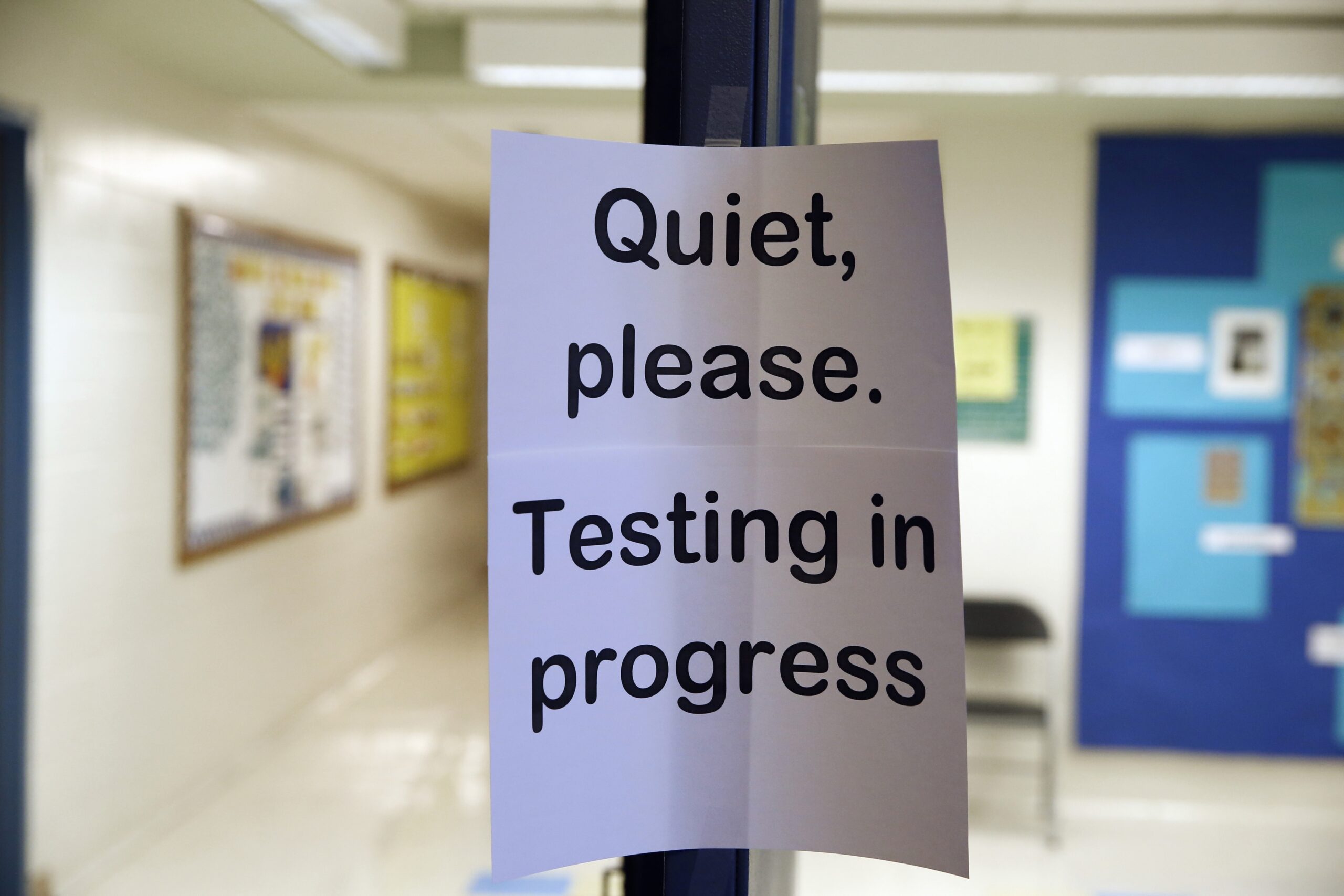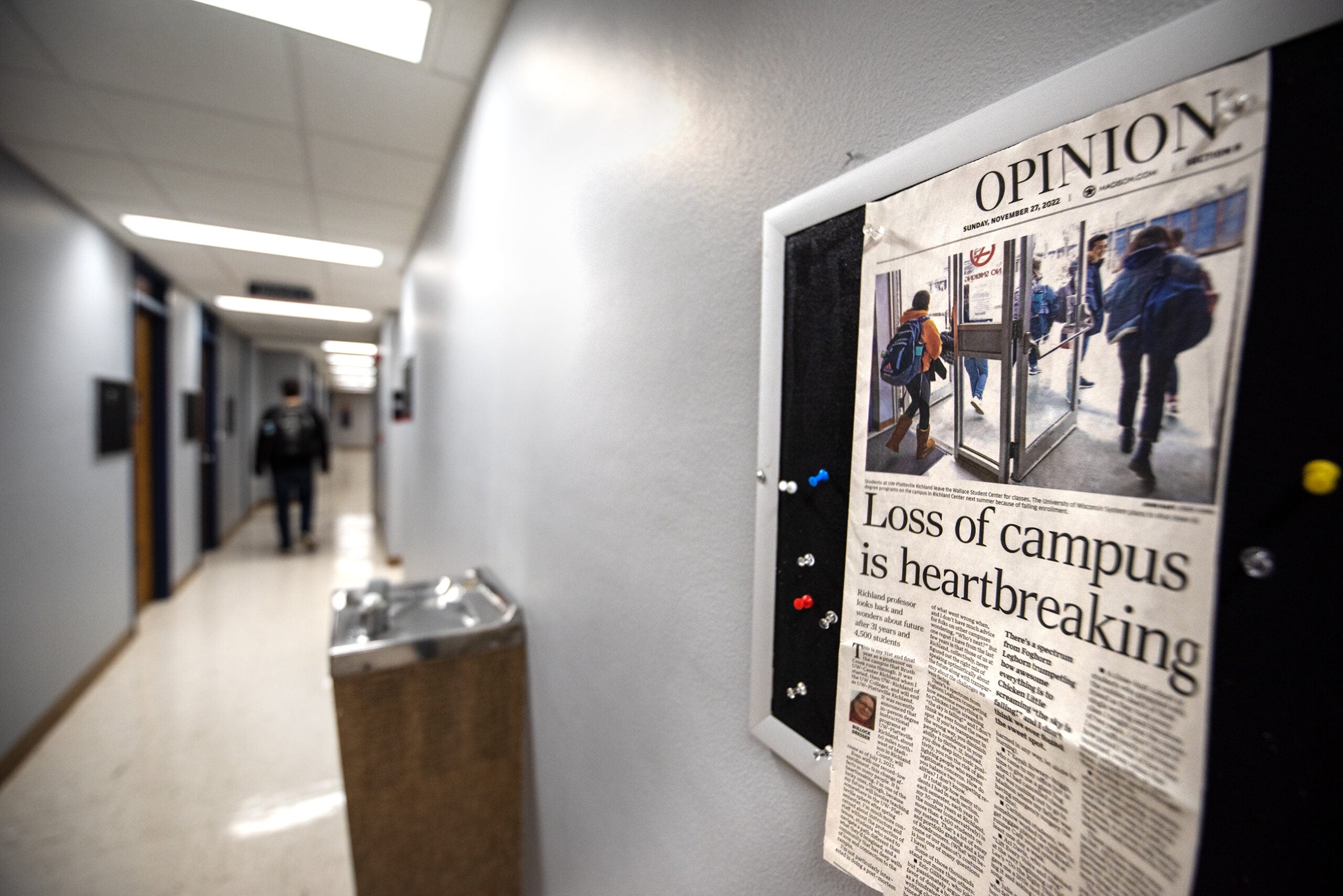High school students applying to University of Wisconsin System colleges won’t have to take ACT or SAT college preparatory tests through the 2024-25 school year. A UW Board of Regents committee unanimously approved extending the “test optional” policy, which has been in place since the start of the COVID-19 pandemic. The full board is expected to approve the measure during its Friday meeting.
The regent’s Education Committee voted unanimously to remain test optional for another two years. An earlier extension for the 2022-23 academic year was approved by regents in July 2020.
UW System Administration Interim Associate Vice President for Student Success John Achter told board members the latest extension will allow the system to complete a three-year research study that aims to measure how accurately the ACT or SAT predict academic achievement for UW students, whether there are long-term consequences of permanently suspending the prior test requirements and whether there are other ways to measure students’ academic readiness.
News with a little more humanity
WPR’s “Wisconsin Today” newsletter keeps you connected to the state you love without feeling overwhelmed. No paywall. No agenda. No corporate filter.
Despite the unanimous vote to extend the test-optional policy, some regents voiced concern.
Regent Rodney Pasch, who also serves as president of the Wisconsin Technical College System Board, said the ACT and SAT tests are seen as one of several achievements for students working their way through high school. He said he hopes the change doesn’t impact college dropout rates within the UW System.
Regent and state Superintendent of Schools Jill Underly said she also has some concerns, but supports the temporary extension.
“For example, a lot of schools and private donors use the ACT for scholarships,” said Underly. “And I think we’ll have to really consider other ways to set kids apart, I guess, for some of these things.”
While high school students may not need to submit ACT or SAT test results when applying to UW System colleges, the Wisconsin Department of Public Instruction requires the ACT test to all 11th grade students.
Supporters of leaving standardized tests like the ACT and SAT behind in college admissions say it results in a bigger, more diverse pool of qualified applicants.
Bob Schaeffer is the executive director of the National Center for Fair and Open Testing. He told WPR the test-optional trend started with small, liberal arts colleges in the Northeastern United States and grew to more than 1,000 schools prior to the COVID-19 pandemic. Once campuses shut down because of the virus, he said hundreds more opted to not require students to provide ACT or SAT test results when applying.
“About 80 percent of all four-year schools in the U.S. are test optional for next fall’s entrance,” said Schaeffer. “And already more than 1,400 have extended their test optional policies at least through fall 2023, which includes high school juniors.”
Schaeffer said he’d like to see UW System schools remain test-optional permanently.
“But if they’re not ready to do that, we urge them to remain test-optional for at least four years so that they can see what these kids actually do in schools and do a study and produce results so peer institutions can see it,” he said.
In a statement emailed to WPR, ACT, which makes one of the standardized tests, said market research shows that institutions that went test optional were unlikely to return to standardized tests. The organization also said going test optional introduces more subjectivity to the admissions process.
“More time and more data are required to fully understand the nature, extent, cause, and longevity of recent changes to admissions policies, in Wisconsin and elsewhere,” said the statement. “ACT’s research has shown that test-optional policies have very limited effects, and, notably, no significant effect on the diversity of the applicant pool or the academic strengths of students applying to college.”
A study published in the American Educational Research Journal in April found that among 100 schools that went test-optional, the percentage of students receiving federal tuition assistance through the Pell Grant went up by about 4 percent and the number of first-time students from underrepresented racial and ethnic backgrounds increased around 12 percent.
“These findings provide evidence regarding the potential — and the limitations — of using test-optional policies to improve equity in admissions,” said Christopher Bennet, the study’s author.
Wisconsin Public Radio, © Copyright 2025, Board of Regents of the University of Wisconsin System and Wisconsin Educational Communications Board.







